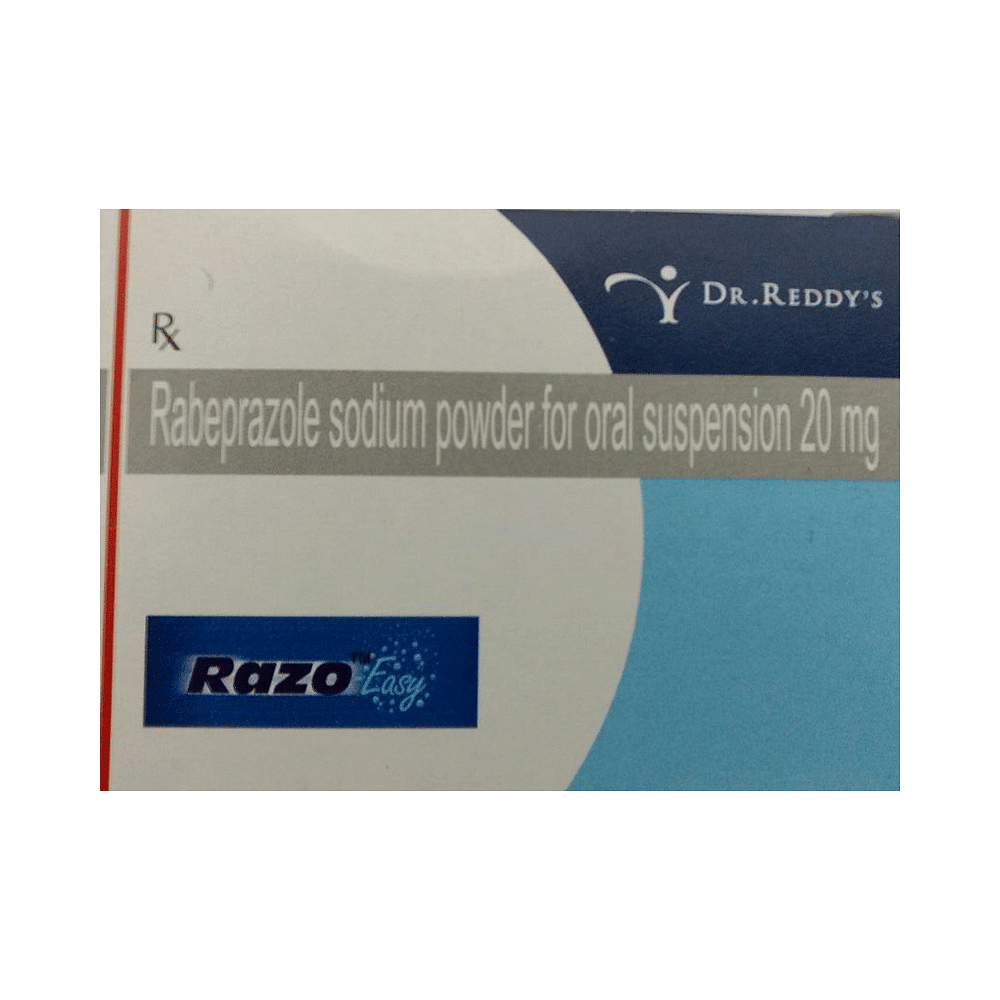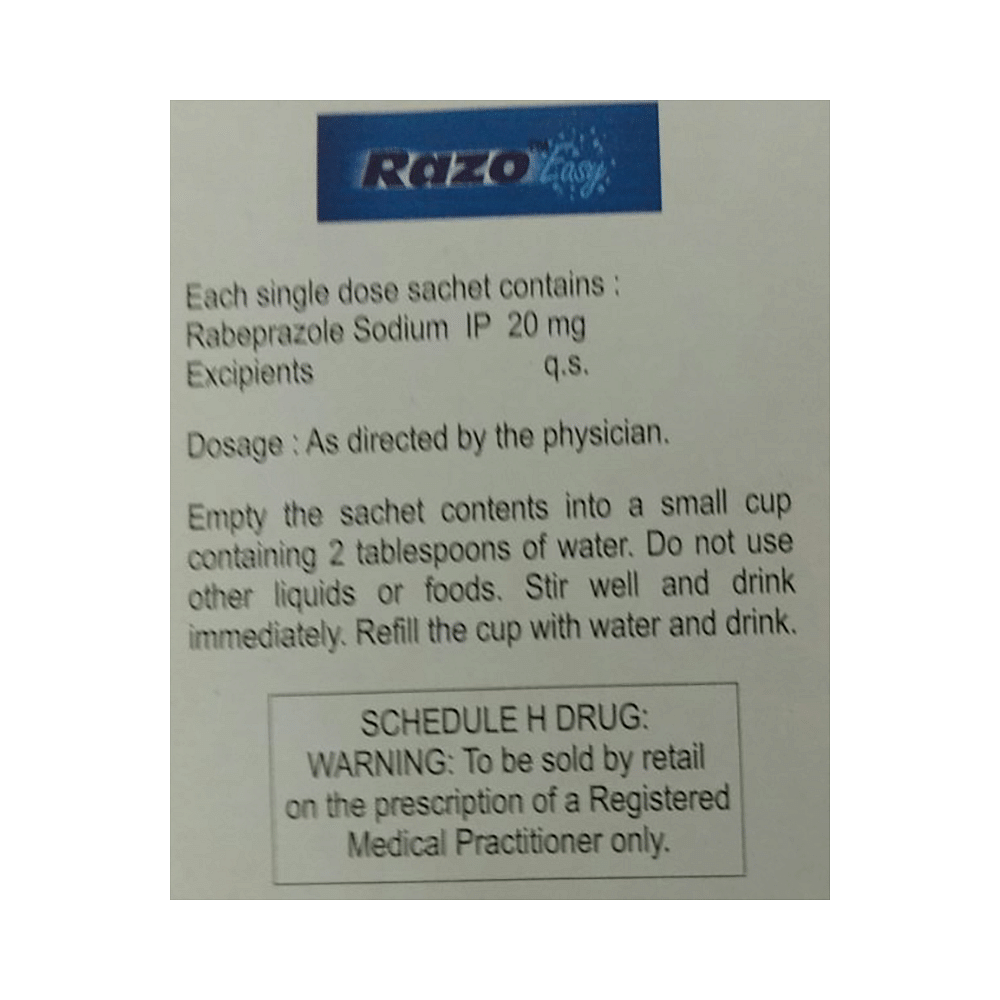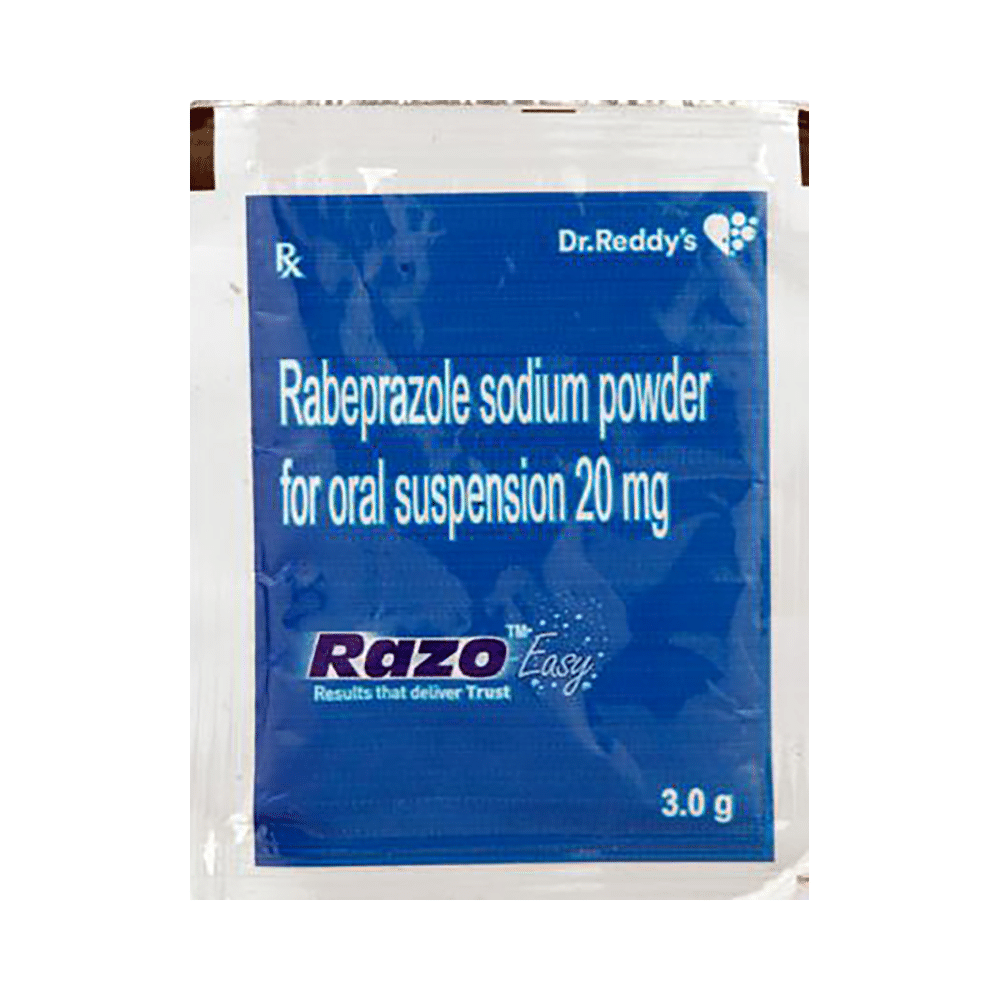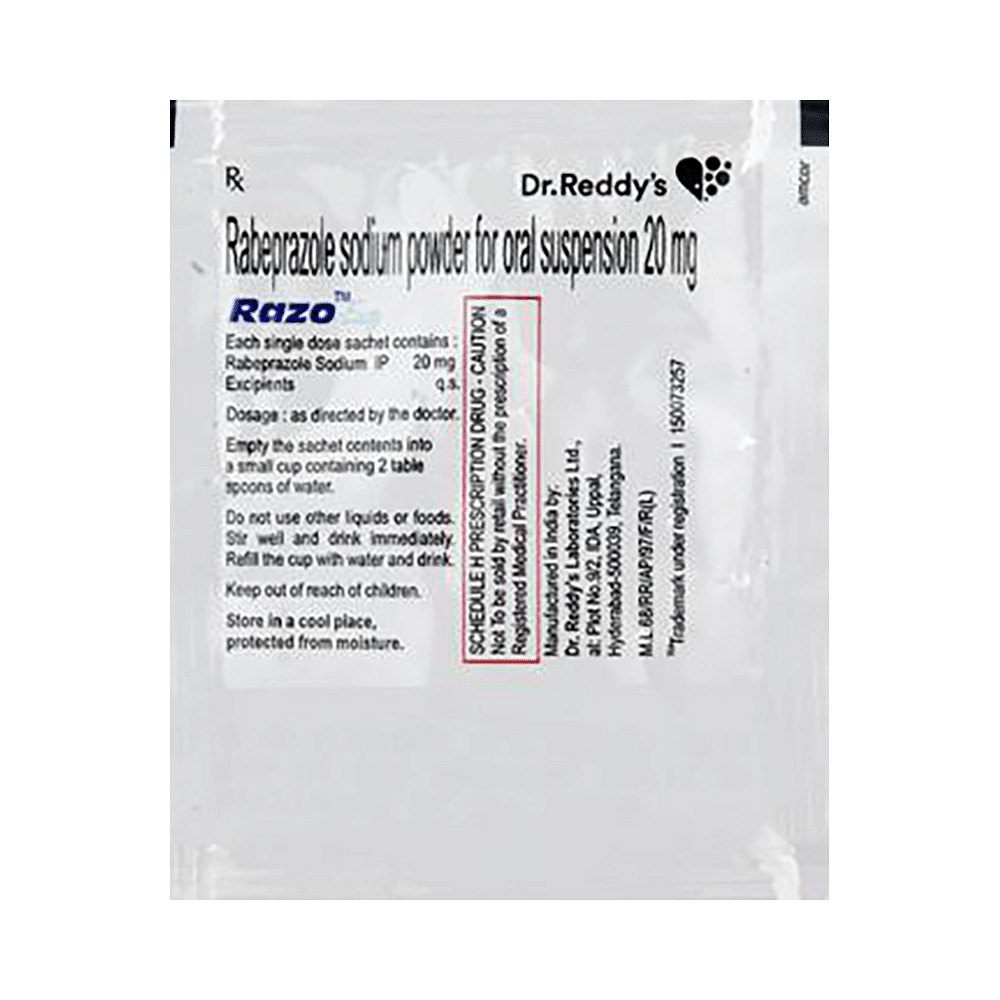



Razo Easy Sachet
Manufacturer
Dr Reddy's Laboratories Ltd.
Salt Composition
Rabeprazole (20mg)
Key Information
Short Description
Razo Easy Sachet is a medicine that reduces the amount of acid produced in your stomach. It is used in the treatment of acid-related diseases of the stomach and intestine such as acid reflux, peptic ulcer disease, and Zollinger-Ellison syndrome.
Dosage Form
Powder for Oral Suspension
Introduction
Razo Easy Sachet medicine should be taken one hour before a meal, preferably in the morning. The dose will depend on your underlying condition and how you respond to the medicine. Try to take it regularly at the same time each day as advised by your doctor. You should keep on taking it as prescribed even if your symptoms disappear quickly. You may be able to help improve your symptoms by eating smaller meals more often and avoiding caffeinated drinks like tea and coffee and spicy or fatty foods.
Directions for Use
Take this medicine in the dose and duration as advised by your doctor. Check the label for directions before use. Dissolve the powder in sterile water. Shake well and use. Razo Easy Sachet is to be taken empty stomach.
How it works
Razo Easy Sachet is a proton pump inhibitor (PPI). It works by reducing the amount of acid in the stomach which helps in relief of acid related indigestion and heartburn.
Quick Tips
Avoid excessive intake of carbonated beverages/soft drinks Avoid citrus juices Avoid fried food Avoid caffeinated beverages like tea and coffee Avoid alcohol and smoking Avoid eating late at night or before bedtime Inform your doctor if you get watery diarrhea, fever or stomach pain that does not go away Inform your doctor if you do not feel better after taking it for 14 days as you may be suffering from some other problem that needs attention Long-term use of Razo Easy Sachet can cause weak bones and a deficiency of minerals such as magnesium. Take adequate dietary intake of calcium and magnesium or their supplements as prescribed by your doctor Consult your doctor right away if you develop decreased urination, edema (swelling due to fluid retention), lower back pain, nausea, fatigue, and rash or fever. These could be signs of a kidney problem.


